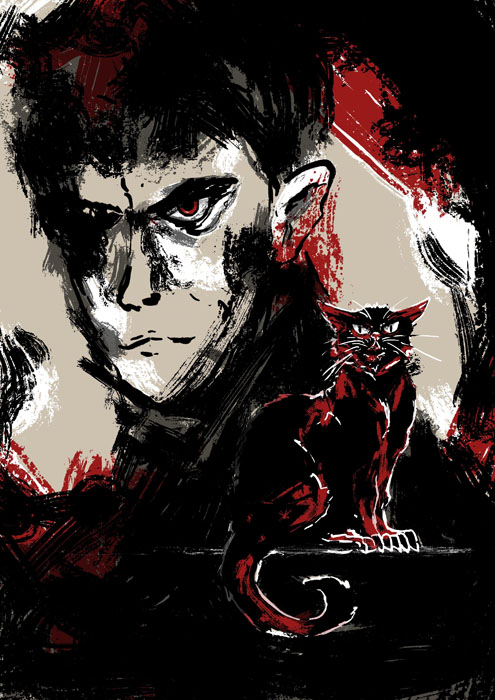Flash Nonfiction
by Brinda Gulati

What I’m about to say isn’t mine to say. I know, however, that no one else will say it, so I’m claiming this memory as my own. In India, we know better than to rely on the local police to solve matters of domestic violence or emotional abuse. Unless your body is a walking billboard of bruises and forceful penetration, the crime scene doesn’t exist — the crime never happened. There is no paperwork to be filled out, no reportages, no interviews of suspects. India is a massive country separated by many layers of distinction, but the language of unmarked bills is quite uniform. You don’t need to understand Hindi to be able to slip a hundred into a constable’s pocket.
When the police came to my bedside at a hospital not very far away from home, they asked about the red slashes on the underside of my right forearm.
I had a tube up my nose, a sizeable one at that, like a plastic tree trunk magically expanding itself into my stomach to pump charcoal. My father was standing at the foot of my bed while two male nurses, panicked and anxious about finding the right instruments, pried my left nostril open.
My Father was standing like he always did. I couldn’t search his eyes for emotion. Maybe he was taller than my immediate line of sight but more possibly, this trip to the hospital was an inconvenience for him.
My father looked bored.
Only when the constable approached, did he take two steps forward to claim me as his offspring. I don’t remember the policeman’s face partly because I remember thinking he was terribly forgettable and then gave myself a figurative rap on the wrist for judging others’ faces when I couldn’t look at my own in any mirror.
More so, I didn’t bother getting to know the features of this forgettable policeman; he was standing next to my father, so it was game over already. My throat had become dry, and my lips were peeling. I figured that being truthful to his question would invite my father’s wrath once I was no longer in a hospital bed, and also that this man, like many others before him, would file my case somewhere in a dusty, abandoned cabinet. If neither of those happened, then my father would ask the constable to step outside with him and they would share a smoke, possibly a handshake with the policeman’s palms suddenly greased with crinkled currency.
In all of these scenarios, it would be the men deciding what to do next — what to do next with a daughter and woman who is hopelessly disobedient to men.
“Ye kaise hua yahaan laal?” (What happened here to make it red?)
“Arrey, aisa kuch nahi hua sir, humaare paas two kutte hain, toh khel khel mein ho jaata hai.” (Ah, nothing to worry about here sir, we have two dogs at home and these things happen.)
I would’ve pointed to my father when the constable asked me about the hard red skin, repeatedly slashed with the force of an angry black cat.
I wanted to tell him to look to his side, that my father is the angry black cat, but he believed my father so quickly and willingly, that they left the second after.
There was no statement taken directly from me, only from the angry black cat with retractable claws that came out in secret rooms and hidden passageways.
I saw the olive green of their uniforms disappear into the neon exit sign. I held my father’s hand and told him that I was scared.
He said everything will be OK.
I knew what the OK meant.
I then hoped to die right there in the coarse blanket if it meant that I will never see his face again.
Of course, the angry black cat also had big yellow eyes, and no one was obscured from his darting reptilian eyes.
It helped me to think of him as different things, some that scared me, some that made me chuckle to myself (imagining him as a seven-headed snake; his eyes like CCTV cameras, scanned us all for double servings of rice; his tongue retracted just as quickly as slimy tentacles like nooses, tightening and softening around our necks — rising from the depths of the black water and casting a dark cloud so we would never know the warmth of the sun.), some that had no comparisons.
His monster defied boxes.
Appeared in Issue Fall '22
Nationality: Indian
First Language(s): Hindi
Second Language(s):
English,
Urdu,
Arabic
Das Land Steiermark

Supported by:


Comments on "Angry Black Cat"
Please log in to submit a comment.
Login